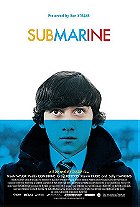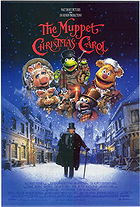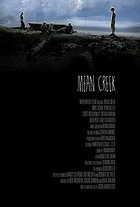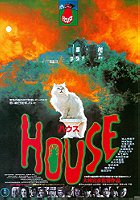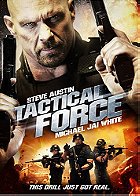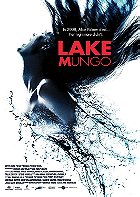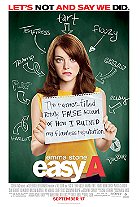Making a genuinely good, original Christmas movie is a difficult task in this day and age. Added to this, after Fred Claus, The Polar Express, The Santa Clause and other such motion pictures, it seems impossible to put another fresh spin on Santa Claus and his North Pole universe. Enter the British animation studio Aardman (best known for Wallace and Gromit), whose CG-animated Arthur Christmas presents another unique interpretation of Santa's behind-the-scenes operations. Directed and co-written by Sarah Smith, this is a movie which eschews typical Christmas movie values to focus on a story concerning the obligation to provide gifts for all the boys and girls of the world. Added to this, its deconstruction of the Santa myth is genuinely original, as the annual present run is shown to be result of militaristic, Mission: Impossible-style tactics courtesy of jolly Saint Nick and his elite team of elves. Arthur Christmas definitely should have been tighter, but the elements which count were done well: there's charm, visual wit, heart, and even some valuable messages.

While Santa Claus (Broadbent) is busy delivering presents around the globe, his eldest son Steve (Laurie) oversees Christmas operations from a control room, assisting the holiday routine with 21st Century technology as he prepares for his impending Santa debut. Meanwhile, Santa's other son Arthur (McAvoy) spends his time in the mail room reading and answering letters from the children around the world. Unfortunately, amidst the frantic Christmas Eve procedures, a glitch leaves one sole present undelivered. Arthur is mortified at the notion of a child being left without a gift, but Steve is oddly comfortable about the loss. Hence, Arthur recruits the elderly, cynical Grandsanta (Nighy) and a plucky elf named Bryony (Jensen) to deliver the item and preserve Santa's integrity. Grandsanta unearths his retired sleigh and reindeer (these days a huge spacecraft is used), and they set out for England with a scant two hours left until sunrise and only a hazy idea of how to achieve their goal...
Aardman is predominantly recognised for their claymation techniques, most notably for Wallace and Gromit. But Arthur Christmas is a computer-animated feature, denoting the studio's second digital outing after 2006's Flushed Away. Retaining the plasticine charm of their earlier efforts, the animation here is somewhat of a hybrid of the old and the new. The backgrounds are remarkably detailed (the water effects are photorealistic), and the cinematography is far more dynamic than a stop motion animation feature would permit. But the design of the characters, while CGI, possess a clay figurine appearance, and wouldn't look out of place in a Wallace and Gromit adventure. There's a surplus of visual creativity to behold here, too, with sly background details that take multiple viewings to fully absorb. Additionally, several set-pieces throughout Arthur Christmas are excellent, including the hilariously enjoyable Christmas Eve operations and the nail-biting climax.

Unfortunately, despite its technical strengths, Arthur Christmas falters when it comes to the story's familial dynamics. The flick gets stuck in a serious rut during its midsection, and it meanders terribly; losing wit, ingenuity, and momentum as it sluggishly scrambles to deal with the laboured family dramatics and find a solution to its conventional plot obstacles. With Arthur's adventure having hit a serious hindrance, the focus is pulled away from him in order to concentrate on dramas within the house of Claus, but none of this stuff is engaging enough to sustain the portion of the runtime that it was allotted. As a result, there's an uncomfortable section of at least 20 minutes when you can happily take a bathroom break and not miss anything important. It takes a while for Arthur Christmas to recover from this, but it thankfully hits the finish line on a satisfying note, bringing the story to an end with warmth and heart before leaving us with a side-splitting epilogue. Still, the flick as a whole doesn't quite gel. It wanted to be a heartfelt family saga rather than just a disposable Christmas adventure, but the dramatic elements are simply not as interesting as Arthur's idealism.
Fortunately, the buoyant vocal cast help bring life to the screenplay even at its drabbest. James McAvoy is ideal as the titular Arthur Christmas, giving the role tremendous charm and believably making the character a lovable doofus. Well-known actors Jim Broadbent and Hugh Laurie also lend their voice talents to the ensemble, with Broadbent a perfect fit for Santa and Laurie almost unrecognisable as Steve (a role oddly reminiscent of Avatar's Colonel Quatrich). The show-stealers, though, are Billy Nighy and Ashley Jensen as Grandsanta and Bryony the elf (respectively). Nighy is especially fantastic; he clearly had an absolutely ball voicing the elderly curmudgeon who's dissatisfied with the technological overload of today's world. Jensen, meanwhile, is chipper and hasty, delivering her dialogue in an adorable Scottish brogue that makes her an utter joy whenever she's onscreen.

While Arthur Christmas lacks the emotion and maturity of a Pixar production, the story is underlined by a timely message: technology may be useful and fun, but it's pointless and vapid without a human touch. At the end of the day, though, Arthur Christmas is disappointingly scattershot, and it's not the instant Christmas classic it should have been. The picture's second act is a laboured, tedious bore, though this material is bookended by two acts brimming with heart, charm, excitement and imagination.
5.8/10
 Login
Login
 Home
Home 183 Lists
183 Lists 1665 Reviews
1665 Reviews Collections
Collections
 0 comments,
0 comments, 